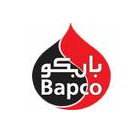Strategy without people is nothing
People make or break a strategy regardless of how good (or bad) a strategy is - CEO's still spend too much time getting the strategy precisely right whilst misjudging the importance of people at gross-roots level in complex and uncertain environments.
The best strategy will invariable fail when implementation is set in an environment fraud with processes and procedures.
Complexity - Uncertainty is ruling critical decision making. The greatest possible misjudgment by leaders keen to implement a new strategy is to confuse complex with complicated. The latter will need more processes and central leadership. Both may be futile in a complex, uncertain environment. Critical decisions are made in a linear way ignoring vital knowledge at grass-roots level.
Complexity doesn't lend itself to mathematics in the way that some linear, financial models and forecasts do. It demands different, adaptive systems. Adaptive systems aren't necessarily ruled by a central leader, there's no strategic plan, no executive board. The features are heterogeneous agents, interaction and an emerging enterprise-wide system.
It is impossible for one leader to see the complexity of the whole system. It is hard to see from any one location the array of relationships and relatedness of individual actions including our own actions - there are cognitive limits. Unfortunately, some leaders ignore the science. As a result they make premature decisions or ignore early warning signs. Consider the banking crisis, decision makers at the top of banks that collapsed or had to be safed by the tax payers were decoupled from the action at the bottom, oblivious to the exposure to subprime lending. Instead of stopping, they continued to lend money, thereby diluting, unintentionally, their banks' balance sheets.
Cognitive diversity - the key is to hire smart people that think differently. Studies have proven that diverse groups are better at making predictions - the key: intentionally putting together different points of view that will challenge one another.
Rather than cascading forecasts down the food chain, aggregating an organisation's knowledge to make more robust forecasts will ensure much more robust predictions. As a result decision making as a basis for strategy implementation will improve.
As a prerequisite, leaders must extract unshared information (rather than just tapping into someone knowledge) from everybody and put it on the table to be evaluated by a larger group that is not confined to the board room.
Too complicated - the real issue of course is that in an increasingly complex environment, many companies increase complicatedness by adding more procedures, processes and indeed people. Not only does this immensely increase overhead tasks such as report writing and attending coordination meetings, it crucially prevents people from implementing the strategy as teams are not managed, are often misdirected, and worst of all, disengaged.
Productive cooperation - People at the bottom of the food chain often avoid trade-offs rather solving them as procedures and processes confine people's responsibilties to what they can control. Responsibilities need to be richer and spread across boundaries, beyond activities over which they have direct control. For instance, if a software development company's strategy is to diversify its services by developing new propositions key strategic performance indicators such as time to market and product profitability, and quite frankly the launch of the proposition in the first place, will dramatically improve when some system analysts and engineers are moved to the pre-sales team, even during the development phase. Let them feel the "shadow of the future".
At Moregate we set out to mobilse large parts of the organisation in order to extract knowledge and foster cooperation. Many leaders and managers aren't naturally good at drawing out others' opinions. In a complex environment ridden by uncertainty, such as a merger or acquisition, challenging the consensus in a controlled manner is critical to avoid the pitalls of M&A deals, the greatest pitfall being overestimating synergy or growth benefits - companies overpay, and because of it, mergers fail.
Our structured approach creates a confined microcosm that identifies the heterogenous agents, mostly ambituous talent ready to change their environment and willing to take along their more resistant colleagues. We set up an interactive environment within a rules-based programme structure and prepare the company for an emerging organisation designed to implement the synergy and strategic (growth) targets in a collaborative fashion.
We welcome your comments. Please email info@moregateconsulting.com
 Moregate Consulting
Moregate Consulting












